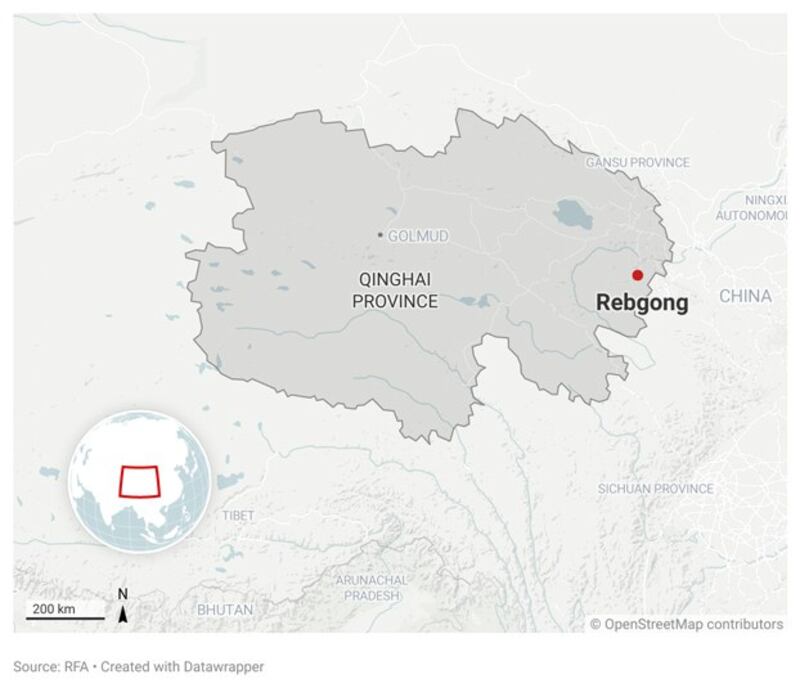Chinese authorities have ordered Tibetans living in Rebgong county, in western China, to vacate their land for the construction of a hydropower dam, forcing them off the farmlands they need to make a living, two Tibetans with knowledge of the situation said.
Authorities in Lingya village, about an hour's drive from Rebgong, issued the order on May 23, requiring seven villages in the region to move so the Chinese government can begin the first phase of construction 10 days after the notice’s issue date, said a Tibetan from Rebgong who now lives in exile.
“The land that is being confiscated by the Chinese government is farmland, which is the livelihood of Tibetans,” said the source who declined to be identified so as to speak freely about the situation. “The authorities have warned the Tibetans to not show any kind of condemnation.”
Rebgong, called Tongren in Chinese, is in Malho, or Huangnan, Tibetan Autonomous Prefecture, a Tibetan-populated area of China’s Qinghai province.

Chinese authorities tightly control residents of the restive Tibet Autonomous Region and Tibetan-populated regions of western China, restricting their political activities and peaceful expression of cultural and religious identity.
Chinese infrastructure and development projects in these areas have led to frequent standoffs with Tibetans who accuse Chinese firms and local officials of improperly seizing land and disrupting the lives of local people. Many result in violent suppression, the detention of protest organizers and intense pressure on the local population to comply with the government’s wishes.
Local authorities will complete all basic requirements from checking land authorization documents, performing measurements and ensuring that residents have left the area within 10 days of the notice date, he said.
Another Tibetan living in exile said authorities have begun confiscating land, but they have not discussed compensation for residents forced to move.
“In a notice sent out by the Chinese authorities regarding the land grab, it mentions that those in areas that need to be vacated for dam construction must be prepared to [leave] and that they must not start any other construction in that area,” said the Tibetan, who declined to be identified for the same reason. “If people don’t abide by it, then they will not be compensated.”
Translated by Tenzin Dickyi. Edited by Roseanne Gerin and Malcolm Foster.
